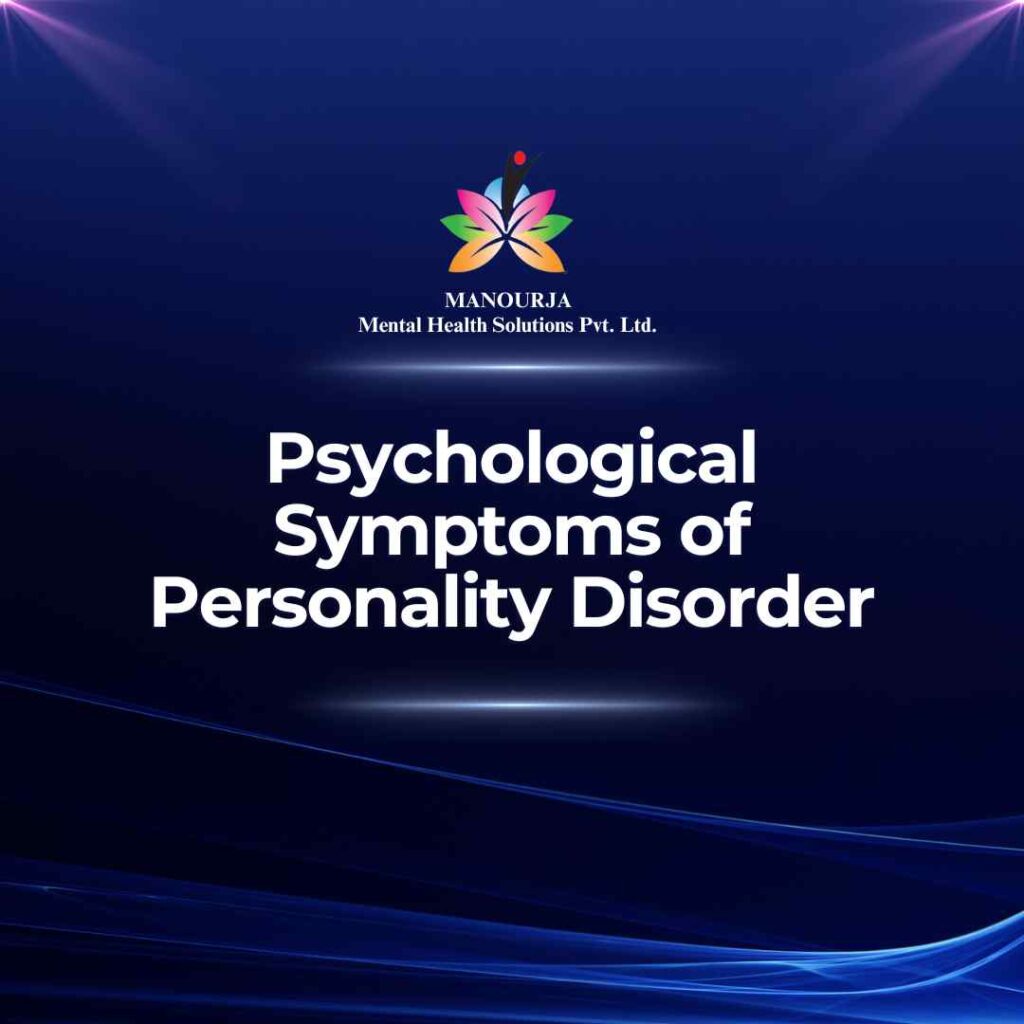Psychological Symptoms of Personality Disorder

Personality disorders are characterized by a variety of psychological symptoms that can vary widely among different types of disorders. These symptoms are typically persistent and deviate from the cultural norms, impacting an individual’s cognition, emotional responses, interpersonal functioning, and impulse control. Below, I’ll outline some common psychological symptoms across various types of personality disorders, grouped into these core areas:
Cognitive Symptoms
- Distorted Thinking Patterns: Individuals may have unhealthy and rigid patterns of thinking and an inaccurate perception of themselves and others. For example, someone with narcissistic personality disorder may have an inflated sense of self-importance, while someone with paranoid personality disorder may have pervasive distrust and suspicion of others.
- Difficulty with Perception and Interpretation: This includes interpreting motives of others as malevolent, particularly in schizotypal and paranoid personality disorders.
Affective (Emotional) Symptoms
- Emotional Instability: This can include rapid and extreme fluctuations in mood. Individuals with borderline personality disorder, for example, can experience intense episodes of anger, depression, and anxiety that may last only a few hours or at most a day.
- Inappropriate Emotional Responses: This may manifest as a response that is out of proportion to the situation at hand, such as explosive anger in response to minor frustrations in cases of borderline or antisocial personality disorders.
Interpersonal Functioning Symptoms
- Difficulty in Relationships: Many personality disorders involve significant difficulties in relationships, ranging from a lack of interest in social relationships (as in schizoid personality disorder) to intense, unstable relationships (as in borderline personality disorder).
- Manipulative Behavior: Seen particularly in antisocial personality disorder, where there may be a tendency to manipulate or deceive others for personal gain or pleasure.
Impulse Control Symptoms
- Impulsive Behaviors: This can include reckless behavior without concern for the consequences, such as spending money irresponsibly, substance abuse, reckless driving, and binge eating, often seen in borderline personality disorder.
- Aggression and Behavioral Outbursts: Individuals with certain personality disorders, like antisocial personality disorder, may display aggression and physical fights.
Additional Common Symptoms Across Personality Disorders
- Fear of Abandonment: Especially prominent in borderline personality disorder, where even a slight indication of separation can trigger intense fear of abandonment and rejection.
- Chronic Feelings of Emptiness: Common in several personality disorders, such as borderline personality disorder, where individuals may describe feeling empty or unsure about their identity.
- Avoidance of Social Interaction: Often seen in avoidant personality disorder, stemming from feelings of inadequacy and sensitivity to negative evaluation.
The manifestations of these symptoms often lead to significant disruptions in the individual’s life, affecting personal, social, and professional relationships, as well as their overall functioning. Diagnosis and treatment typically involve a comprehensive psychological evaluation and may include psychotherapy as the primary treatment modality, sometimes supplemented by medication to manage specific symptoms such as mood instability or depression.
At MANOURJA, we believe in the transformative power of counseling. Our experienced therapists offer a safe and supportive space where you can explore your thoughts, emotions, and challenges. Through personalized counselling sessions, we’ll work together to develop coping strategies, build resilience, and achieve lasting positive change. Discover the path to a healthier, happier you with MANOURJA counselling services.
MANOURJA Rehabilitation Services
At MANOURJA, we’re dedicated to helping you in rebuild your life, after difficult times. Our rehabilitation services focus on understanding what you need to move forward, whether you’re recovering from addiction, trauma, or any psychological – social challenges. We create personalized plans, that are all about helping you, regain your strength and find hope again. With a caring team by your side, you’ll have the support to make real progress and take steps toward a brighter, healthier future
